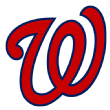The dream scenario for most major league teams is to be a top contender while simultaneously building a top farm system that can meet the short-term and long-term needs of the organization. But as the saying goes, anything that can't go on forever won't, and like the British Empire, the sun has finally set on every great franchise so far in history, leading to down periods of short or long duration.
We talk about the success cycle in baseball not because always competing isn't preferable but because the basic structure of the system puts significant pressure on successful teams. Players get rapidly more expensive as they hit the end of the arbitration years, and you can't always develop the exact player you need to replace that player. At the end of a team's run of excellence, you tend to see teams start to hit Payroll Hell, in which the team's payroll no longer matches its ability to win games and the minor league system is exhausted like an oil well from 1920. For these teams, escaping Payroll Hell will require a lot more than Orpheus with a lyre. Let's look at baseball's Seven Circles, using Baseball-Reference's reckoning for payroll estimates.
 First Circle: Washington Nationals
First Circle: Washington Nationals
The trouble in Washington isn't quite here; we're talking about a team that won 97 games in 2017 and 95 in 2016 and looks to be one of the top contenders in 2018 as well. The Nationals have 12 MLB free agents this winter, and though that sounds like a lot, most of those players are secondary talent or were short-term pickups. Even the biggest name, Jayson Werth, didn't really contribute much to the past two successful Nats teams, and removing the $21 million he made yearly is a lot more helpful than his departure is a hindrance.
There's danger on the horizon, however. Washington's payroll entering 2017 was $165 million. By Baseball-Reference's reckoning, Washington already has $169 million or so baked into the cake for 2018. 2019 is when things start to get scary, when the Nats go from 11 players with guaranteed contracts to four, but they will see that guaranteed money drop by only $33 million. That puts them around $140 million, but with no Bryce Harper, no Daniel Murphy, no Gio Gonzalez, no Matt Wiet ... OK, let's stop at those three. Those three players generated 14 bWAR for the Nationals. Add Anthony Rendon the following year and Stephen Strasburg's opt-out, and the Nats face an uncertain future.

